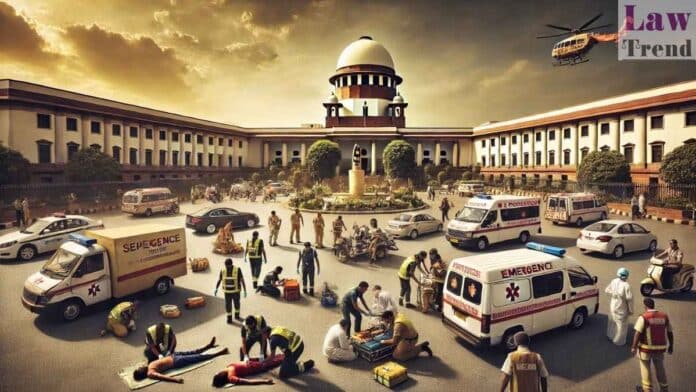The Supreme Court has ruled that Income Tax Returns (ITR) filed after an accident or death can be taken into consideration for calculating income to award compensation in motor accident claims. The Court held that rejecting a return solely on the ground of its submission after the date of the accident “cannot be legally sustained.”
To Read More Please Subscribe to VIP Membership for Unlimited Access to All the Articles, Download Available Copies of Judgments/Order, Acess to Central/State Bare Acts, Advertisement Free Content, Access to More than 4000 Legal Drafts( Readymade Editable Formats of Suits, Petitions, Writs, Legal Notices, Divorce Petitions, 138 Notices, Bail Applications etc.) in Hindi and English.




